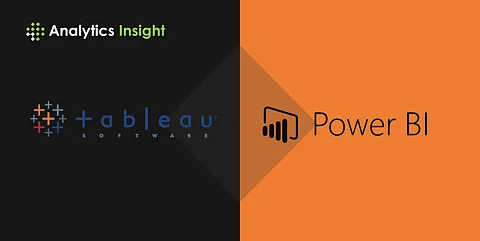

In this era of disruption, it has become mandatory for businesses to opt for smart ways to stay relevant in the market. The business intelligence and analytics platforms serve a great purpose in aiding businesses to grow forward and the self-service BI tools shift the analytics responsibility from IT to business analysts with support from data scientists and database administrators.
Not only it generates monthly reports from the system of record now but interactively discover and share trends, forecasts and also answers to business queries based on internal and external-sourced data. The self-service BI can make decisions on a course of action in a few days.
But which self-service BI platform an organisation should adopt? To figure out which platform is best suited for the organisation, the two viewpoints could be – from the business-users' perspective and from the point of view of one's IT infrastructure. Also the company needs to ask certain questions to go for such platforms:
• Will it match the skills of people using it?
• How easily people can learn and use it?
• How efficient is it in removing barriers and making analysts' jobs easier?
• How well can the platform read all internal and external data sources?
• Can it be cleaned and transform data within the platform easily?
• If the data can be shared with anyone in the company or only with licensed users?
Exploring these questions, we can say that Tableau and Power BI are two heavyweights of such kind of platforms. But to choose between them, we need to compare the factors and analyse which is best-suited for one's organisation.
Microsoft's Power BI includes a web interface to a service hosted on Azure and a Power BI Desktop application for the Windows desktop. The standard account on Power BI is free, a Pro account is $9.99 per user per month, and the Power BI Desktop is free. The website and the desktop application both are updated on a regular basis and the Power BI Desktop is updated monthly but it's hard to tell when the site is updated.
Also for certain data sources, Power BI has prescribed charts, dashboards, and reports. For other sources, it expects to see certain markers for its data. Also it is a reasonable choice for companies that use the Windows, Office, and Azure ecosystem. Power BI is also a good choice for cost-sensitive companies that want to provide BI to everyone in the organization. However, Power BI does not provide with much analysis capability or control over the charts as Tableau.
Tableau describes its products as offering "analytics that work the way you think" and its visual discovery phase of the analysis workflow is the alluring part. Although it's not where most people spend most of their time. In fact, importing and conditioning the data can easily consume most of the time one spends with a BI product. With its cross-database joins feature, people are likely to import multiple data sources and join them, although you might have most of them hosted in your data warehouse (provided if the company is big or rich enough).
The visual discovery feature of Tableau is powerful and has set the bar for its easy-to-use implementation and fine control of the chart display. People can build a Tableau visualization by clicking on or dragging the dimensions and measures of interest, and either choosing a mark themselves, or using automatic mark selection, or using the "show me" method for selecting the visualization.
It's pricing has become more competitive of late where its personal edition costs $35 per user per month, professional edition costs $70 per user per month and Tableau Server costs $35 per user per month. The Tableau Online (fully hosted) is priced at $42 per user per month.
However, looking at the features and pricing of both the platforms, we can say that Microsoft BI offers nearly 80 percent of Tableau's features for about 25 percent of its price.
Join our WhatsApp Channel to get the latest news, exclusives and videos on WhatsApp
_____________
Disclaimer: Analytics Insight does not provide financial advice or guidance. Also note that the cryptocurrencies mentioned/listed on the website could potentially be scams, i.e. designed to induce you to invest financial resources that may be lost forever and not be recoverable once investments are made. You are responsible for conducting your own research (DYOR) before making any investments. Read more here.
